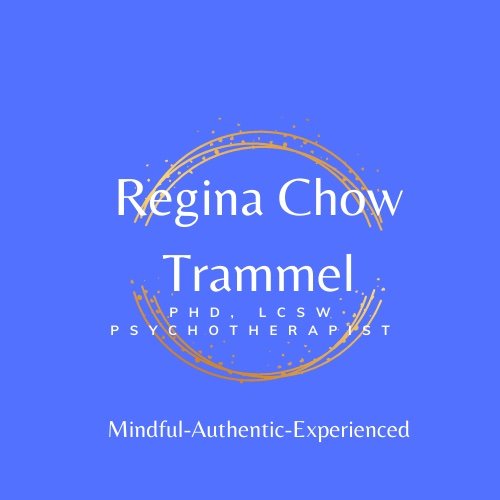Mindfulness and its individual and community benefits from an expert on Christian mindfulness
Have you ever found yourself feeling overwhelmed, emotionally drained, or disconnected from the people around you? If so, you’re not alone—and you’re not without tools. One of the simplest yet most powerful practices you can begin today is meditation. But why should we be meditating? And what are the actual benefits we can expect to see, both inwardly and outwardly?
What is Meditation?
Meditation is more than just a wellness trend. It's a scientifically supported practice that promotes emotional balance, cognitive clarity, and deeper connections with others. In the world of mental health, meditation is a form of emotional, cognitive, and community self-care.
Let’s break down each of those benefits—and what’s really happening in the brain and body when we meditate.
Emotional Benefits of Meditation
Meditation helps us regulate emotions. Many studies show that regular meditation can reduce the intensity of painful emotions, such as fear, shame, or grief. More importantly, it creates space to fully experience positive emotions like joy, gratitude, and contentment.
By stepping back from our emotional reactivity, meditation helps us approach life with greater compassion—for ourselves and for others. We become more grounded, even during challenging times.
Cognitive Benefits: Sharpening Focus & Reducing Stress
Research shows that students who meditate before exams perform better than those who don’t. Why? Stress and anxiety interfere with memory and recall. Meditation works by reducing the mental clutter that prevents clear thinking.
Meditation increases what's known as cognitive flexibility—our brain’s ability to shift gears, focus, and stay present. Over time, this can lead to greater productivity, more creative problem-solving, and even improved academic or work performance.
Community & Relational Benefits: Being More Present
When we meditate, we become more attuned—not only to ourselves but to others. This increased awareness helps us show up more fully in relationships, whether that’s with our students, colleagues, family members, or friends.
Simple rituals, like drinking tea slowly or practicing mindful listening in conversation, are ways we can bring meditation into our everyday interactions. These practices create space for authentic connection and compassion.
What Happens in the Brain When We Meditate?
Meditation is a form of active relaxation. Throughout the day, our brains receive countless inputs—from phones, social media, conversations, work stress, and more. Meditation gives the mind a break, helping us reset.
Physiologically, meditation activates the parasympathetic nervous system—our body’s natural “rest and digest” mode. This lowers our breathing rate, slows the heart, and signals to the brain that it’s safe to relax.
On the flip side, it calms the sympathetic nervous system, which is responsible for the fight-or-flight response. Over time, meditation becomes more than a state—it becomes a trait. That means our baseline stress levels can actually lower as meditation becomes a habit.
What the Science Says: Real Data, Real Results
In one study I conducted, we measured heart rate variability (HRV) using an electrocardiogram (ECG), focusing on the RR interval, which is influenced by the vagus nerve—a key player in regulating stress.
Participants listened to a 20-minute mindfulness-based meditation once a week for an average of 7 weeks. This simple intervention, adapted from Jon Kabat-Zinn’s Mindfulness-Based Stress Reduction (MBSR), showed both short- and long-term improvements in nervous system regulation.
So yes—there are immediate effects on the brain and body after even one meditation session, and the long-term benefits compound with consistency.
How Often Do You Need to Meditate?
You don’t need to meditate for hours to experience the benefits. Just 10 to 20 minutes a few times a week can make a noticeable difference. If you're new to meditation, start small. One minute of focused breathing is better than none.
What If I Struggle with Meditation?
Many people find meditation intimidating. Maybe your mind races, you feel restless, or intrusive thoughts come up. That’s completely normal.
Here are a few gentle tips:
Start with guided meditations—apps or recordings can help anchor your attention.
Try walking meditation—focus on each step as you move.
Practice eating meditation—pay full attention to the flavors, textures, and smells of your food.
Use mindful listening—focus completely on what someone is saying, without planning your response.
If your intrusive thoughts are ruminative or impair your ability to function, it may be a sign to reach out for professional support. A therapist can help guide you in finding the right approach.
Final Thoughts: Start Where You Are
Meditation isn’t about doing it perfectly. It’s about showing up. With practice, you’ll notice shifts—in your mood, your clarity, and your ability to be present with others. Meditation is a gift you give yourself, and it ripples outward to the people around you.
If you’d like support in building a mindfulness practice that works for your life, therapy can help. I offer a compassionate, personalized approach to healing and emotional wellness. Reach out anytime.
Hi! I am Regina and I'm passionate about helping you work through challenges. I provide a caring, warm, & non-judgmental space so you can work through existential meaning, loneliness, purpose, authenticity & recapturing joy with mindfulness, parts, and cognitive skills. I provide safety as I also nudge my clients toward growth. Those who work with me say they have grown in insight and experience greater emotional regulation & hope. I serve clients in California and Illinois.
As your therapist, I will support you to feel relief, build resilience, flourish & find renewed hope. Combining mindfulness, existential, somatic, parts, & inner child work, we will safely dive deeper to so that you can find long-lasting healing. I have extensive experience & training in evidence-based therapies as a professor and in my work as a therapist.
Your cognitions, values, behaviors, lived experience, and history are fertile ground for mindful introspection and the foundation for recovery. My clients tell me that they have made choices to protect their energy, have experienced a decrease in depression, anxiety, or trauma-based symptoms, and have gained insight and clarity about who they are becoming.

